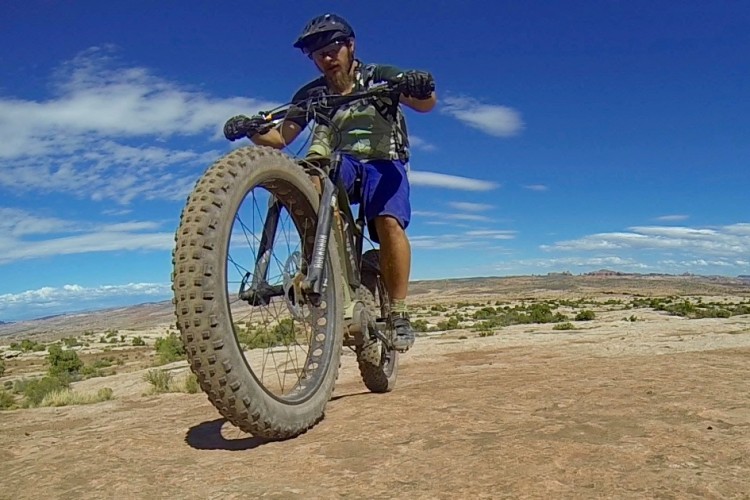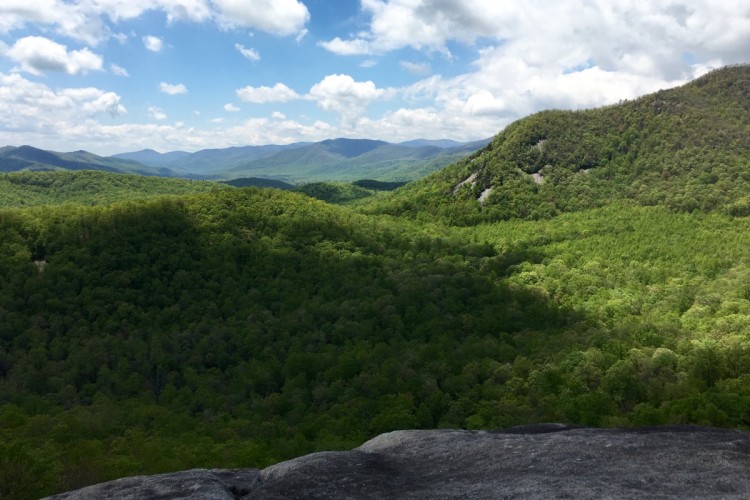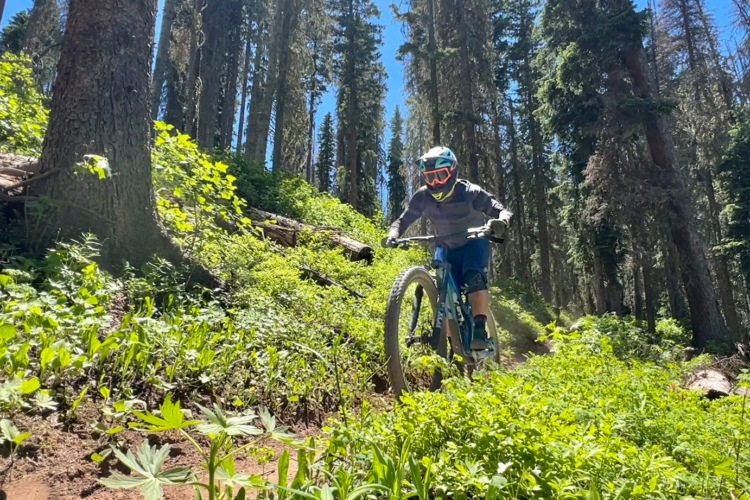We just wrapped up our biggest survey ever (by number of responses) on Singletracks.com. 4,334 mountain bikers chimed in to tell us about what bikes they own and ride, and we threw in a couple of other questions too–specifically, about wilderness.
Urban legends have flown around the internet about how, supposedly, many, many mountain bikers don’t support the idea of opening even some Wilderness areas to mountain bikes. However, those rumors have been impossible to substantiate aside from the social media hearsay. So we wanted concrete answers: how many mountain bikers think bikes belong in wilderness?
Our sample size was substantial: 4,334 people responded to our survey. In analyzing the wilderness responses, we took the results and limited them to just respondents from the United States and Canada, which left us with 3,686 respondents. Within these two countries, our sample was distributed well across the nation, with about 42% in the east, 36% in the west, and about 22% in central US and Canada. Our age and gender demographics were consistent with standard mountain biking demographics and demographics that we’ve found in previous surveys, with good distribution overall.
However, the type of riders that responded to our survey was skewed a little bit by the Singletracks audience. Namely, of those who responded, 2,262 self-identified as trail riders, 1,124 identified as XC riders, 726 identified as enduro riders, and just 62 identified as gravity riders. While the gravity population is drastically under-represented, this actually is quite useful for our Wilderness analysis: trail and cross country riding is the type of mountain biking that could take place in Wilderness if the blanket ban is ever reversed. Gravity riding is unlikely to ever exist in Wilderness areas due to the prohibition on erecting permanent manmade structures, among other stipulations. So, in essence, we’ve surveyed the type of riders who would be most compatible with the trails and the type of riding that Wilderness could offer–an unexpected but greatly-appreciated boon.
96.2% of mountain bikers think at least some Wilderness trails and areas should be opened to bikes.
Simply put, the answers were astounding. Based on our survey results, 96.2% of mountain bikers think at least some Wilderness trails and areas should be opened to bikes. Only an extremely small percentage, 3.8%, were opposed to the idea of bikes in wilderness.
Of the 96.2%, 38.9% of those respondents (37.4% of US riders) take the hard line and believe that all wilderness areas should be opened to bicycles. However, the majority of riders, 58.8%, take a more moderate approach and believe that only some Wilderness areas should be opened to bikes.
Above and beyond asking whether riders think they should have access to Wilderness, we were curious to know: do riders think that the sport of mountain biking is compatible with Wilderness ethics and land preservation? The answer was yes: 94.8% of all riders surveyed believe that mountain biking is compatible with everything that Wilderness stands for.
But perhaps even more important than merely thinking that Wilderness should be open to bikes, the vast majority of mountain bikers believe that we should be actively pushing and advocating for bicycle access to Wilderness trails: 90.5%, in fact.
90.5% of mountain bikers think that mountain bike advocates should we should actively push for mountain bike access in Wilderness.
Whatever the social media hearsay is regarding the number of riders opposed to mountain biking in Wilderness, consider that urban legend debunked.
However, perhaps the most interesting takeaway is that the vast majority of riders want mountain bike advocates to push for bike access in Wilderness. They want to take action, and aren’t content to sit idly by, just hoping that something will change in the future, without taking any steps to effect that change.
In case you are unaware, there are two major mountain bike advocacy organizations currently operating on the national level: the International Mountain Bicycling Association (IMBA) and the Sustainable Trails Coalition (STC). IMBA does not currently seek to get bicycles accepted in existing Wilderness, as per their Wilderness FAQ. The Sustainable Trails Coalition’s sole goal is to open the door to mountain bikes in some Wilderness areas.
As we discussed above, the demographics for our respondents were well-distributed geographically, in gender, and in age. Overall, the responses and averages were consistent across those demographics. However, we did notice one interesting trend worth commenting on: on average, older riders are more against the idea of bikes in wilderness, whereas younger riders are, overall, more in favor of the concept. Looking solely at the question “Do you think mountain bikes should be allowed in Wilderness areas?” 90.4% of riders age 55+ said that at least some should be open. That percentage increases to 94.9% for riders age 45-54, to 96.7% for riders age 35-44, 97.7% for riders age 25-34, and 98.9% for riders age 18-24.
This trend stayed the same for our advocacy question, although with an even bigger jump from 55+ to 45-54: an increase of 8.7% in favor. It’s possible that the older generations don’t feel the urge to work for access because the road ahead may not yield appreciable changes in their lifetimes, because they’ve had 32 years to become comfortable with the status quo since the prohibition on mountain biking in Wilderness was passed in 1984. However, even in the most un-favorable demographic that we surveyed, 81.8% of riders age 55+ are in favor of pushing for mountain bike access in Wilderness areas–still a massive majority.
This indicates that times, they really are a changin’. As the younger generations continue to mature and come into their own, and continues to get more and more involved in mountain bike advocacy, it seems that this already-overwhelming belief that mountain bikes belong in Wilderness–and the desire to do something about it–will only continue to increase.






















10 Comments
Feb 21, 2016
Feb 11, 2017
May 22, 2017
One question regarding the survey: did you provide a definition of Wilderness Area? I find it hard to believe that most people even know the true definition and what it encompasses.
May 22, 2017
Do you think mountain bikes should be allowed in Wilderness areas?
Do you think mountain biking is compatible with Wilderness ethics?
Do you think mountain bike advocates should push to allow bikes in Wilderness?
Feb 18, 2016
Feb 17, 2016
Now that we're all in agreement, let's figure out how to make this happen!
Jul 5, 2019
I solo mountain bike, backcountry camp, backcountry ski, whitewater canoe, ocean kayak...
I had a very competitive mentality for team sports, and for outdoor sports; how far, how fast, no matter what the conditions, can I go? When locked into the race mental state, wilderness means nothing. Period. One doesn’t even notice the wildflowers...not alone stop to smell the roses. If I am in race mode, I can take my downhill bike to the ski hill. If I’m in the wilderness mode, being on my bike is going to do a disservice to a truly wilderness experience. I do 95% of the trail maintenance at Pinetop Jumping Pound Loop. I can bet very few bikers stop to admire the flora and fauna. A lot of hikers and bikers and horseback riders will chew up the trail and braid the trail when it’s muddy; wilderness means nothing to them, it is about a destination, or so it appears.
Look deep into nature, and then you will better understand the answer to the question posed!
Apr 10, 2018
https://www.blueridgeoutdoors.com/april-2018/flashpoint-wheels-over-wilderness/
Apr 11, 2018
Even though I hunted as a kid growing up, I stopped when I became a vegetarian. But I never put the hook and gun club into a category that I was against. We shared the outdoors in different ways. Did they align with my beliefs? No. But when it comes to protecting those wild places they align with me 100%.
There are democrats, republicans, independents and communists that mountain bike. Mountain biking is one thing we all agree on. Let's spend more time educating our biking brothers and sisters about what a wilderness area really is, and less time trying to divide us further. The outdoors industry is huge. It's finally getting some recognition in Washington (its contribution to GDP is now larger than oil and gas extraction) and that will only work if we stay united.
Dec 20, 2017